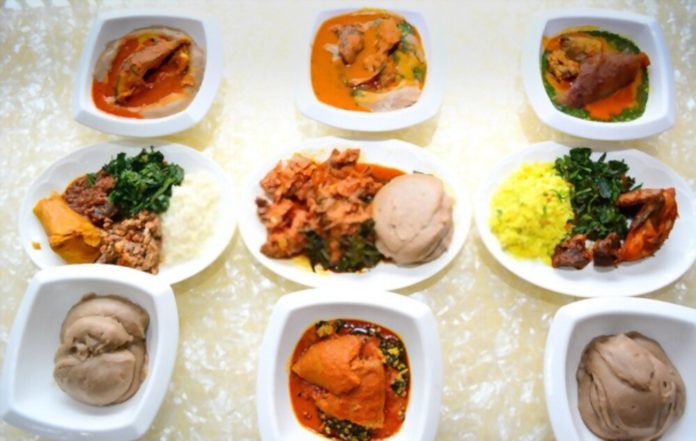The food business in Nigeria has, without a doubt, become one of the major businesses that one can go into and, within a few months, make a lot of money. This article is an in-depth look into how to start a food business in Nigeria and make it big by doing it right.
Everyone has a basic need for food. Without a doubt, the poor and rich have to eat to survive.
Today’s reality is that most people in Nigeria do not have the skill and time to prepare food in their respective homes. For instance, people living in Lagos have to spend hours in traffic every day; the commute time is so stressful that all they want to do is to find a space to rest rather than go into the kitchen; thus, they would rather spend a fortune on buying food than actually making one.
As a result, casual dining restaurants and fast food spots have become the most preferred destination by many Nigerians. Hence, the business is really booming these days. Lots of money is being made in that industry daily, and you can cash in on it. Read on to see how.
Contents
Types of Restaurants and Food Service Businesses in Nigeria
Fast food and Quick Service restaurants
Nigeria currently has a lot of these types of restaurants. While some of them are upscale such as Macdonald’s and KFC, others mainly focus on the common man.
Fast food restaurants have a minimal menu and are sometimes called quick-service restaurants or QSRs. Standard practice is to cook in bulk and to prepare it in advance. The food is then kept warm (or hot) throughout the day.
QSRs are establishments that serve fast food. Usually, customers order food at the counter so they can eat it there or take it home. Aside from fast food, these establishments also offer a variety of quick meals and snacks.
Guess what? Most of the not-so-big fast-food restaurants around are owned and operated by individuals and small businesses. The bigger ones, however, are connected to a franchise or chain operation such as KFC. Here they, provide a standardised recipe that each of that branches uses daily.
When modified, the fast-food restaurants metamorphose into mobile food centres and casual restaurants.
In casual restaurants, customers can sit and wait to be served their orders, and they can get their orders delivered to them. Factory and construction workers enjoy mobile food services (such as food trucks) that park outside their workplaces.
Casual dining restaurants
A comfortable dining option just above fast food locations is the casual dining outlet with a menu that customers can choose from and table service. In this type of restaurant, there is a relaxed atmosphere since clients expect to spend a little time enjoying their dinner, and they are more likely to eat their meals there than to take them home.
Fine dining restaurants
A fine dining restaurant is in the upper range of the restaurant business. It is targeted at people who prefer premium dining and are willing to pay a premium for it.
Located in full-service restaurants, they offer a variety of food, service, and ambience.
Additionally, they can be pretty expensive to open and run and can have a substantial financial impact on you. In addition to the specific meals, the waiters and staff are very well trained, professional, and highly efficient.
There must be a great deal of attention to detail in fine-dining restaurants. Their decor, lighting, layouts, tableware and ambience usually are very elaborate and exquisite.
Ethnic Restaurants
These restaurants serve food from a specific country, culture, or region. In recent years, Nigerians have developed a taste for foreign food, and foreigners have come to Nigeria in higher numbers for business and pleasure. Hence, making this type of restaurant be in high demand.
The most popular ones in Nigeria are Italian, Chinese, Mexican, Caribbean, Thai, French, Indian, German, Japanese, Mediterranean, Korean, Vietnamese and Thai.
How you can start your own food business in Nigeria
In Nigeria’s growing restaurant market, there is a range of opportunities depending on your budget and location. As you prepare to turn this great idea into a brilliant business, there are a few things you should consider.
Step 1: Select a unique concept
To make your restaurant idea come to life, this is the very first step. Restaurants and food services come in many kinds, as we learned in the previous section.
Do you like quick-service (fast-food) restaurants? Such a business can be started with low capital. You could set it up around your home or in a space down the road.
In contrast, you can invest in a fast-food franchise, which is likely to require a significant capital investment.
A fine dining restaurant and an ethnic restaurant are on the other end of the spectrum. For instance, the cost of hiring a professional cook who specialises in Chinese, Italian, Thai or whatever ethnic food you choose will be high if you plan to open an ethnic restaurant.
Also, you should know that starting a fine dining restaurant will be expensive and that you will probably have to hire professionals and experienced staff.
Considering your location and the type of people you will be targeting can help you decide which restaurant to open.
- What is their income level?
- Can they afford a fine-dining or ethnic restaurant?
- Are they like a family-type group, or are they on the move and just want a quick lunch before leaving?
- Do they usually take their time with a meal?
- Do they work, study, work, or are they elderly?
By knowing your market, you will be able to determine the type of restaurant you will open. Although proper planning and capital are essentials, starting a food business nobody wants would be a disaster.
Step 2: Pick an appropriate location
Whether your restaurant will be successful or fail depends mainly on its location.
Are the type of people the restaurant concept targets located near or around where your site is located?
Suppose you are interested in opening a fine dining restaurant. In that case, your site should be in a part of town that has high-end restaurants and residential areas, as well as people who are likely to patronise your establishment.
- What is the location of your restaurant going to be like? Is it easy to get to?
- Is there enough space for parking?
- Can it handle the number of customers you plan to have?
- Does the location seem visible to the public or hidden somewhere in the city?
It’s important to make sure the area you choose is crime-free, and the rent for the location will allow your business to turn a profit.
Step 3: Develop a business plan
Ensure you have all the permits or licenses needed to operate your food business at the location you have selected. While this may differ depending on which part of Nigeria you are in, what is uniform for all is registration with the CAC.
Additionally, you should have a business plan that is not too elaborate or complicated.
You must organise your thoughts on paper, even if you do not intend to seek capital from investors or banks. By creating a business plan, you can quickly identify all the obstacles and other aspects you might not have considered before.
The layout of the restaurant, the capacity, and the seating arrangement must be considered when planning. The menu must be designed, and ingredients and food must be sourced from the best places or suppliers. Also, it’s wise to buy the right equipment (refrigerators, kitchenware, etc.).
You should also plan for the type and number of employees you will need.
It is also essential to consider the competition. What is their number? What are the chances of your restaurant surviving against the competition – Will your food taste better or do you intend to beat competitors with a clean and conducive atmosphere? Will your customer service be exceptional, or do you plan to sell more quality food for a lower price.
Here is how you can write a great business plan
Step 4: Execute the plan and open the business
After carefully determining the market for your restaurant and setting up shop in the best spot to reach that market, you will begin to see good profits.
In any case, you should keep these three success tips in mind.
- Hygiene, food quality, and customer service should never be compromised
- Focus on developing a loyal following of customers
- Perseverance, hard work, and patience
Conclusion
It’s important to note that anyone can do this type of business irrespective of background and gender. And though it can be pretty stressful at first, it’s very rewarding in the long run.


























